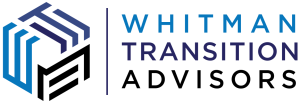The use of technology in due diligence has never been more important than it is now. While due diligence in a remote world may present new challenges, the increased use of virtual data rooms and video conferencing services such as Zoom and GoToMeeting have facilitated this process immensely.
It is no longer business as usual, as the corporate world continues to shift as a result of the coronavirus outbreak in early 2020. The new norm for M&A transaction processes will involve a host of considerations, issues, and deal terms that were not relevant before Covid-19.
For buyers, due diligence will be more important than ever before. Given the M&A opportunities in the market, buyers and sellers must have an increased focus on gauging risk and value going forward.
New Business
Buyers and sellers should now be anticipating logistical changes to M&A deal making. Due to ongoing government and travel restrictions, office closures, and quarantine measures, buyers should have a strategy in place to optimize resources surrounding due diligence.
Parties to an acquisition should also factor in additional time for a thorough diligence process, as there should now be heightened scrutiny of novel business and legal issues that were not paramount to past analyses. The challenge is how best to understand the impact they will have on the future success of a business.
Buyers will need to have these issues mapped out in advance in order to request and analyze the necessary information. For example, the target’s employment policies should be scrutinized to understand how the business is handling the new regulatory environment and best practices in managing the workforce.
A fundamental inquiry will focus on the target’s compliance with federal, state, and local laws, regulations and ordinances, as well as the attendant costs of such compliance currently and into the future.
A buyer must now understand, from an operational and technological standpoint, how well a target company supports remote working and the myriad of data protection, cybersecurity and privacy issues that present significant risk.
Other business issues with increased importance in due diligence include a target’s potential supply chain disturbances, key customer business issues, and insurance coverage for business interruption and other similar risks.
Many of the technology tools such as Zoom and GoToMeeting will remain a part of the process into the future, as deal participants move away from in-person meetings, visits and tours. Sellers play a critical role in making the remote due diligence efficient, including a shift to the digital collection of business documentation, contracts, and financial data. Having the resources and skills to collaborate on-line is critical.
Corporate Culture
The increased use of technology in due diligence is both unavoidable and beneficial, if done well. However, a major focus for buyers and sellers continues to be corporate culture and the personal intangibles that make for a successful acquisition.
Most dealmakers are skeptical that in-person meetings will go away or be less important, particularly as the pandemic and related health and safety regulations subside. Until that time, the importance of corporate culture in evaluating an acquisition target will continue to prompt efforts towards maintaining a safe environment in which management can interact on a personal level.
Financial Analysis
Buyers now need to assess how the pandemic has impacted the financial results of the target in 2020 and beyond. How did the target’s management team respond to the pandemic, and what changes were put in place to stabilize operations in both the near and long term?
The typical EBITDA benchmarks for value and enterprise financial performance should be assessed under a different lens to account for a target’s financial performance during the pandemic that may not be symbolic of past and future performance. It will likely be useful to compare the target’s EBITDA trends to other companies within the same industry to understand performance, and to compare EBITDA trends for the quarters prior to the pandemic to those directly impacted.
Indeed, because the valuation analysis is much more difficult due to the effects of the pandemic, buyers and sellers may turn to other forms of contingent consideration in the form of earnouts and other adjustments to purchase price. Buyers may learn early in the due diligence process that an earnout mechanism – which conditions the payment of a portion of the purchase price on financial performance of the target post-closing – is a viable way to reduce risk while still allowing sellers to obtain what they perceive to be full purchase price value if the future performance of the business is strong and in line with pre-pandemic results.
Purchase price adjustments may also warrant attention in the due diligence and negotiation stages. Such adjustments serve to compensate a seller or buyer if certain working capital levels differ from an agreed-upon target at closing. But with uncertainties surrounding revenues and collection of A/R, among other performance variables, buyers and sellers will have to spend more time and effort finding a solution to bridge the valuation gap.
Deal Terms
Prior to the pandemic, acquisition financing was robust, as lenders were actively looking for opportunities and offering attractive rates and favorable loan terms. But along with the pandemic came economic uncertainty and tightened debt markets. Buyers needed to consider alternative financing sources, such as mezzanine financing, revolving credit, earnouts or equity rollovers.
Buyers have also come to build in and expect longer commitment periods, as lenders will scrutinize deal structure and terms. These and other factors will require more time and resources to obtain the right acquisition financing for a deal.
Buyers and sellers are spending more time negotiating critical deal terms. Crafting reps and warranties and related disclosures requires more attention and focus on a number of typical representations concerning the target’s supply chains, employment policies, financial statements and the security of its data.
“Material adverse effect” and “material adverse change” (“MAE”) provisions will also take on greater importance. An MAE is generally defined within an acquisition agreement as any event, condition, or circumstance that has a material adverse effect on the business of the seller. If the pandemic continues with or without the arrival of new variant strains, buyers are likely to continue to assert that its effects on the target justify terminating the deal.
While it is clear that due diligence and the typical considerations in an M&A deal have changed, planning, preparation and flexibility are key. The adaptations buyers and sellers are making now could contribute to better valuations—and more successful transactions—in the months and years ahead.
At Whitman Transition Advisors, we understand the importance of inclusion and diversity in the workplace. Our team of experts can help your firm develop strategies for attracting and retaining diverse talent, creating an inclusive culture, and building a reputation as an employer that values and respects all individuals. Contact Whitman Transition Advisors today to discover what it means to have a strategic partnership with a trusted advisor in the CPA industry.









